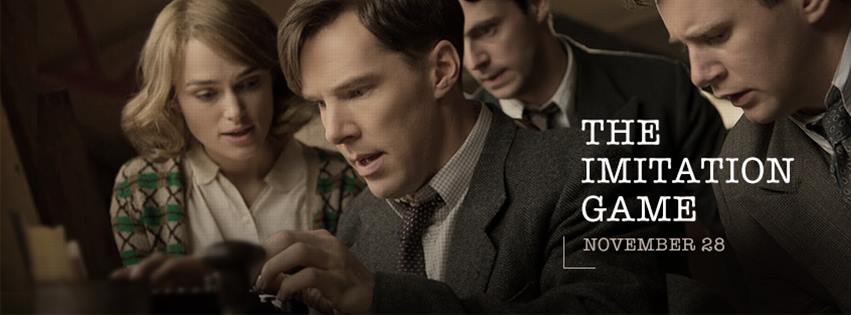‘The Imitation Game’ boasts rich emotions
November 26, 2014
Cyphers and mathematics have never before been as emotionally triumphant as they are in “The Imitation Game,” an above-average biopic. Told in a series of flashbacks and flash-forwards, “The Imitation Game” reveals the story of genius mathematician Alan Turing (Benedict Cumberbatch) and his mental pursuit to decipher the German Enigma codes.
While other World War II films show the deep and enduring struggle of soldiers that physically fought against the Axis powers, “The Imitation Game” tells the story of a different kind of soldier. Instead of fighting it out on the battlefields of Normandy or Stalingrad, five mathematicians try to defeat the Third Reich with wit and smarts. Nestled behind the iron gates of Bletchley Park, a military operating camp in southern England, Turing and his intellectual counterparts Joan Clarke (Keira Knightley), Hugh Alexander (Matthew Goode), John Cairncross (Allen Leech) and Peter Hilton (Matthew Beard) fight their own private, intellectual and emotional war. Every day, these geniuses are put to the task of solving a near-impossible code — a task they would perform through trial and error in approximately 18 hours.
Turing is portrayed as an isolated narcissist that is as much of an enigma as the Nazi code he is trying to solve. Cumberbatch plays Turing almost too well — we see him collapse and become broken inside when he is revealed as a robotic monster.
With a layered and poignant screenplay by Graham Moore, “The Imitation Game” does not keep the action of the story at surface level — it dives deeper into Turing’s emotional struggle. As Turing loses himself to his work, his past and personal life are illuminated on screen. The audience finds out about Turing’s homosexuality and later sees him persecuted for his actions.
Solving the Enigma codes is the goal in this film, but it is not the resolution. The audience realizes that even after Turing and his peers finish deciphering, they are still faced with the challenge of how to stop oncoming German attacks without drawing attention to their discovery. In a way, this group of well-dressed and clever mathematicians are given the opportunity to play God — they decide what cities are destroyed and which are saved, who lives and who dies. Ultimately, their efforts assisted the military in a clandestine fight to halt the war two years earlier than predicted, saving millions of lives.
The story is one of bravery and overcoming the odds to produce remarkable and life-changing results. The film gives heart to an otherwise unfeeling and technical field as viewers find the greatest of heroes in the most unlikely of places, snuggled in a tiny village in the south of England.
A version of this article appeared in the Wednesday, Nov. 26 print edition. Email Sidney Butler at [email protected].











































































































































